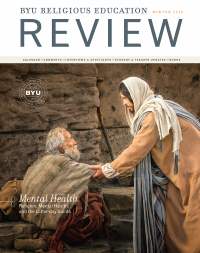The Review magazine serves the purpose of connecting interested readers with the research, publications, and teaching events of Religious Education generally. In putting together each issue of the magazine, I have the opportunity to draw attention to and highlight the great research and teaching that is currently taking place. This process allows me to hear about the many fascinating projects that are ongoing, some of which we have featured in the pages of the Review. It has been my privilege to engage with different scholars and to publicize their research. Over the past five years, I have become aware of the fact that one of the primary challenges of academia is the difficulty scholars face to publicize their work and to find funding to support new research. In this issue, Dean Brent L. Top invites contributions to fund-raising, which is vital to help the work of Religious Education to move forward.
Within the current environment of immediate commentary on almost every action, statement, or event, we are variously bombarded by information that is either truthful, carefully articulated, reactionary, deceptive, or even subversive. General information is easy to obtain, but balanced and high-quality information is more difficult to obtain. Universities exist, in part, to promote discussions of information that balances both supporting and contradictory evidences. This can be difficult to achieve in religion because there are traditions, popular opinions, public perceptions, and misinformation that require time and energy to discuss. In the Review, and in Religious Education, we strive to present balanced approaches to history, practice, and belief.
I have felt that for some time the Church has reached a crossroads of sorts regarding its history and popular challenges to that history. One response has been to repeat older answers to new challenges, but I’m afraid that our generation has been tasked with rethinking the ways in which we respond, with bringing in different vantage points, and with considering old evidence in new ways. At the RSC we are striving to do this. We strive to bring the passion of our researchers to bear on the conversations for which our readers are hungry and thirsty. We value your continued support of our efforts, and we will continue to strive towards promoting the best that Religious Education has to offer.
Thomas A. Wayment
Publications Director
Religious Studies Center
